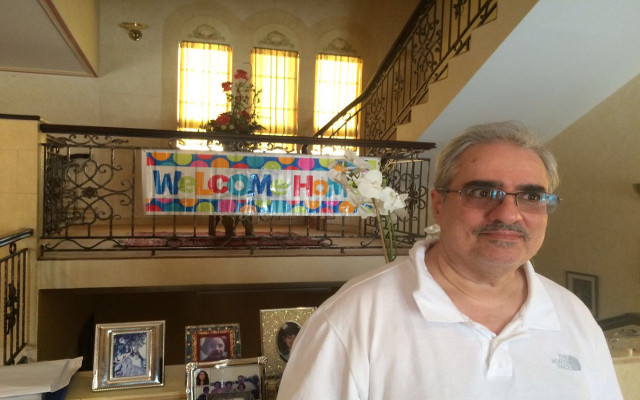On 11 July 2016, prominent political activist Ebrahim Sharif completed his one-year prison sentence and was released from Bahrain’s Jau Prison. The Government of Bahrain arrested Sharif on 12 July 2015 for a speech he gave and later charged him with “inciting hatred.” Prosecutors are now seeking to extend Sharif’s sentence for the same charges from 2015 on appeal. The uncertainty of Sharif’s sentence puts him at risk of re-arrest.
News of the possibility for Sharif’s sentence to be extended coincides with Bahraini authorities’ campaign to silence political dissent. On 14 June 2016, the Government of Bahrain shut down Al-Wefaq, the largest political opposition party in the country. Bahraini forces suspended the group’s political activities, froze their assets, and closed regional offices around the country. Bahraini courts will hand down their final verdict on confirmation of the dissolution on 17 July 2016. Prior to the closure of Al-Wefaq, Bahraini courts targeted the party’s leader, Secretary General Sheikh Ali Salman. On 30 May, authorities increased Sheikh Ali Salman’s sentence from four years to nine years on appeal. Courts had previously acquitted him on charges of “attempts to overthrow the regime.” Sheikh Ali Salman is currently serving his sentence in Jau Prison.
The Government of Bahrain has also acted to inhibit the work of human rights defenders in the country. On 13 June 2016, Bahraini security forces surrounded the house of prominent human rights defender Nabeel Rajab and arrested him. Bahraini forces later charged Rajab with “spreading false news” for tweets he posted in 2015 that referenced torture in Jau Prison and the Saudi-coalition in Yemen. Since his imprisonment, Rajab has been rushed to the Bahrain Defense Force (BDF) hospital for an ongoing heart condition. Rajab’s first hearing was scheduled for 12 June 2016. Courts postponed the hearing to 2 August 2016.
In addition to his arrest, Rajab has not been able to leave Bahrain for human rights advocacy work. On 13 July 2015, the Public Prosecution imposed a travel ban on Rajab as an act of reprisal against his human rights work. Since then, the Government of Bahrain has increased its use of travel bans to silence civil society. On 12 June 2016, a delegation of human rights defenders, political activists, and family members of those victims killed by Bahraini authorities attempted to travel to the 32nd Session of the UN Human Rights Council (HRC). Upon arriving at the airport, authorities notified the delegation that they were barred from leaving the country due to travel bans against them. The following day, authorities barred teacher unionist Jalila al-Salman from travelling to Norway. On 29 June 2016, the Bahraini government prevented journalist Nazeeha Saeed from travelling to Germany. In the last month, ADHRB has documented the cases of at least a dozen political activists, journalists, lawyers, family members of victims, and human rights defenders who the Government of Bahrain has barred from leaving the country.
As Bahraini authorities continue to repress civil society, they also continue their ongoing trend of revoking individuals’ citizenship and deporting those individuals. On 20 June 2016, the Government of Bahrain revoked the citizenship of Sheikh Isa Qassim. Sheikh Isa is one of the most prominent religious clerics in the country. His case is one of the latest in more than 70 cases of citizenship revocations in 2016. Since the announcement of his denaturalization, Bahraini citizens have surrounded Sheikh Isa’s house in Diraz to prevent authorities from arresting him. The mass sit-in around Sheikh Isa’s house has been ongoing for more than three weeks. On 26 2016, Bahraini authorities deported human rights lawyer Taimoor Karimi after they revoked his citizenship in 2012. Bahraini courts originally charged Karimi for his advocacy work during the 2011 pro-democracy movement. Karimi is now living in exile in Iraq.
The unprecedented repression of civil society in June 2016 has severely impeded the work of human rights defenders and political activists. The Government of Bahrain uses tactics such as travel bans, the threat of harsher sentencing on appeal, citizenship revocation, and deportation to contain and silence individuals for speaking out against systematic government abuses. The Bahraini government should immediately release and drop the charges of all political prisoners, including Nabeel Rajab and Sheikh Ali Salman; lift the travel bans imposed against members of civil society who advocate for the promotion of human rights in Bahrain; and reinstate the citizenship of those individuals who the Bahraini government has arbitrarily denaturalized.
Erin Sigmon is an advocacy assistant at ADHRB.





